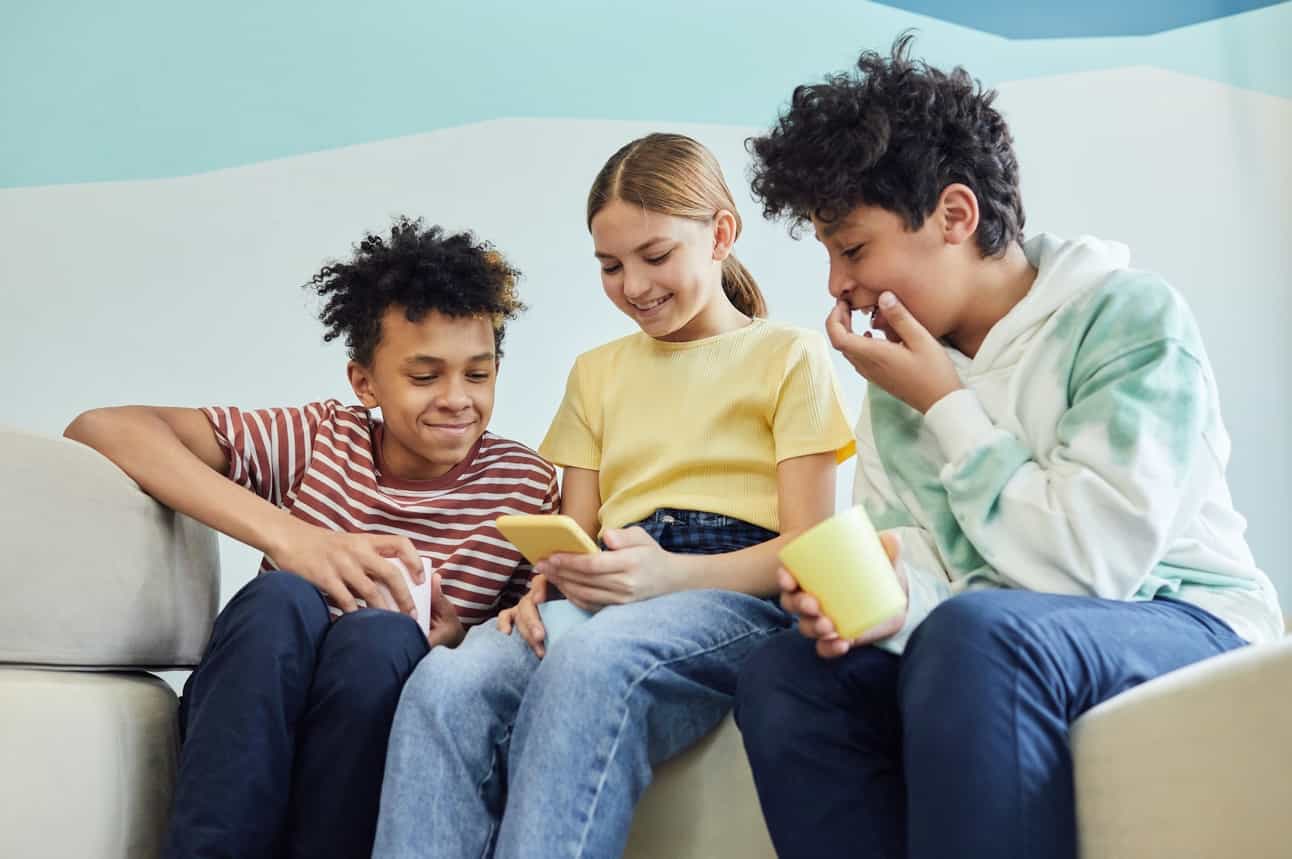Interpersonal skills play a crucial role in success, both professionally and personally. As students transition into adulthood, it is vital that they possess the necessary skills to communicate effectively, collaborate with others, and build meaningful relationships. Interpersonal skills, also known as soft skills or people skills, are the abilities that enable individuals to communicate, interact, and work with others effectively. They include communication, teamwork, conflict resolution, problem solving, active listening, empathy, and forming positive relationships with others.
Table of Contents:
- Why Teach Interpersonal Skills to Students?
- The 10 Most Important Interpersonal Skills Students Need to Succeed
- How to Teach Interpersonal Skills to Students
- 8 Tips for Building Strong Interpersonal Skills in Children
- 14 Activities for Building Interpersonal Skills in Children
- Resources for Learning and Building Interpersonal Skills
- Conclusion
Why Teach Interpersonal Skills to Students?
There are several reasons why children should acquire great interpersonal skills. For starters, it assists youngsters in developing solid connections with their classmates and family members, which has a great influence on their mental and emotional well-being. Furthermore, excellent interpersonal skills might help people negotiate social settings more effectively, making them more confident and resilient in the face of adversity. Finally, interpersonal skills are critical for success because they enable children to successfully work with their peers and teachers.
There are numerous benefits to teaching interpersonal skills to students, including:
- Improved communication: By learning effective communication techniques, students are better equipped to express their thoughts and ideas, and to understand the perspectives of others.
- Better teamwork: Interpersonal skills such as active listening and collaboration are crucial for successful teamwork. By teaching these skills to students, educators can help them develop the ability to work effectively with others.
- Interpersonal abilities like empathy and active listening can assist students in resolving conflicts and settling disagreements in a civil and beneficial way.
- Increased self-awareness: By learning about and practicing interpersonal skills, students can develop a greater understanding of their own strengths and weaknesses, and be better equipped to build meaningful relationships.
The 10 Most Important Interpersonal Skills Students Need to Succeed
Academic accomplishment improves with interpersonal skill improvement. It is not that having strong social skills makes you smarter; rather, it is that having them improves your academic performance. Students and their educators should strive to work together and cultivate self-discipline. Teaching and reinforcing these behaviors reduces disruptive ones and frees up class time.
Stephen Elliott, a Vanderbilt Peabody education and psychology researcher, surveyed more than 8,000 educators and analyzed data from more than 20 years of classroom study to determine the top 10 skills children need to thrive. These skills are:
- Listen to others
- Follow the steps
- Follow the rules
- Ignore distractions
- Ask for help
- Take turns when you talk
- Get along with others
- Stay calm with others
- Be responsible for your behavior
- Do nice things for others
Additionally, these three student beliefs are crucial to success:
- I am aware of how to conduct myself when I am in the company of other individuals.
- Character is what people see when they observe you with other people looking.
- When I engage with other people, I am very aware that my reputation is in public view.
How to Teach Interpersonal Skills to Students
There are a number of strategies that educators and parents can use to effectively teach interpersonal skills. These include the following strategies and behaviors:
- Incorporating role-playing and simulations: By acting out different scenarios, students can practice and develop their interpersonal skills in a safe and controlled environment.
- Encouraging active listening and good communication: By teaching students the importance of active listening and providing opportunities for them to practice this skill, educators can help them develop this crucial interpersonal skill. It’s important for parents and educators to model good communication, which means speaking clearly and calmly, avoiding negative language, and showing empathy towards others.
- Fostering empathy: Empathy is the ability to understand and share the feelings of others. Encourage students or children to work together with others, to share and take turns, and to appreciate the unique strengths of each person on the team. Also, help them envision putting themselves in other people’s shoes, and imagine how they would feel in a similar situation.
- Nurturing kindness and compassion: Kindness and compassion are important qualities for building strong interpersonal skills. Parents and teachers can encourage these qualities by teaching children to be respectful of others, to help those in need, and to be understanding of others’ feelings and perspectives.
- Promoting collaboration and teamwork: Educators can facilitate teamwork by creating group projects and activities that require students to collaborate and communicate effectively. Working together on tasks and projects builds social skills, whether it’s a school project, household chores, or even just a game.
- Teaching conflict resolution skills: Conflicts are a natural part of life, and it’s important for children to learn how to handle them in a healthy and effective manner. Teach your children to listen to both sides of an argument, to communicate clearly, to use words to express their feelings, and to find solutions that are fair to everyone involved.
8 Tips for Building Strong Interpersonal Skills in Children
Here are some good tips to help you build strong interpersonal skills in your child:
- Start early: It is never too early to start teaching your child interpersonal skills. Encourage your child to communicate openly and effectively from a young age.
- Make it fun: Interpersonal skills can be taught in a fun and engaging way. Use games, role-playing, and other fun activities to help your child develop their skills.
- Be patient: Developing strong interpersonal skills takes time and patience. Encourage your child to keep practicing and working on their skills, and be patient and supportive along the way.
- Provide feedback: Give your child constructive feedback on their interpersonal skills, helping them identify areas for improvement and build stronger skills over time.
- Lead by example: Children learn by observing the behavior of those around them, so it is important to lead by example and model good interpersonal skills in your own behavior.
- Provide opportunities for social interaction: Interacting with others is a key part of building strong social and interpersonal skills, so it’s important to give your child chances to do so. This can be through organized activities, such as sports or clubs, or through more informal settings, such as playdates or family gatherings.
- Encourage them to take turns: This is a simple but important skill that can help children learn to be patient and considerate of others. Start by modeling this behavior yourself, and then gradually give your child more opportunities to take turns.
- Praise them for their social skills: When you see your child using good interpersonal skills, be sure to praise them. This will help them recognize the importance of these skills and want to use them more often.
- Teach Emotional Intelligence: Encourage your children to know and express their own emotions as well as recognize similar emotions in others.
14 Activities for Building Interpersonal Skills in Children
Here are 12 activities that can help children build their interpersonal skills:
- Role-playing games are a fun and engaging way for children to develop their interpersonal skills. Parents can create simple scenarios for children to act out and encourage their children to act out different scenarios to practice communication and conflict resolution skills.
- Board Games: Board games that require teamwork and negotiation can help children develop their interpersonal skills.
- Group Projects: Working on group projects at school or at home can help children learn how to collaborate and communicate effectively with others.
- Group Games: Group games, such as team-building exercises, can help children learn how to work together, communicate effectively, and build trust with others. Some popular group games for building interpersonal skills include trust exercises, communication challenges, problem-solving activities., card games, or even just playing tag or hide-and-seek.
- Board Games: Board games that require teamwork and negotiation can help children develop their interpersonal skills.
- Read books about social skills: There are many great books available that can teach children about social skills. Look for books that are age-appropriate and that focus on skills that your child needs to work on.
- Public Speaking: Encouraging your child to participate in public speaking opportunities, such as presentations or debates, can help them build confidence and communication skills.
- Volunteer Work: Volunteering in a group setting can help children learn how to work with others towards a common goal. This will help them develop empathy, teamwork, and problem-solving skills.
- Acting or Improv Classes: Acting and improvisation classes can help children develop their social and communication skills.
- Social Skills Groups: Some schools and organizations offer social skills groups for children, where they can practice and develop their interpersonal skills in a supportive environment.
- Community service: Community service is a great way for children to develop interpersonal skills and make a positive impact on their community.
- Outdoor activities: Outdoor activities such as camping, hiking, and sports can help children develop teamwork, communication, and problem-solving skills.
- Bean bag conversation: Toss a bean bag around in a group, and then each child takes a turn talking. Think of different ways you can add to the talk, such as by asking a question, commenting on what has been said, or adding something related to the topic.
- Watch and say something: Play out different situations and talk about the right and wrong ways to communicate, such as standing too close or too far away from someone, not making enough eye contact, or cutting someone off in the middle of a chat.
Resources for Learning and Building Interpersonal Skills
- 7 Social Skills Every Student Should Have and Step-by-Step Guide to Teaching Them
- A Collection of Social Emotional Lesson Plans & Activities, Grades K-3
- Fundamentals of Interpersonal Communication (H.S. and college)
- How to Handle Cyberbullying
- Interpersonal Communication – A Mindful Approach to Relationships (HS and college)
- Social and Emotional Learning 5 Core Competencies, Grades 3-5
- Social and Emotional Learning 5 Core Competencies, Grades 6–8
- Teamwork Activities
- Tips and Strategies for Teaching Strong Interpersonal Skills in Children
- What Does the Bible Say About Interpersonal Relations
- Social and Interpersonal Skills, with Rubrics:
- Accepting An Apology
- Accepting Compliments
- Accepting Constructive Criticism
- Accepting “No” for an Answer
- Apologizing
- Asking A Favor
- Being A Good Listener
- Conflict Resolution with Rubric for Role Play
- Conversational Skills
- Dealing with Bullying
- Declining an Invitation
- Expressing Empathy
- Expressing Success
- Expressing Your Feelings Appropriately
- Following Directions
- Getting Someone’s Attention
- How to Handle Cyberbullying
- Interrupting Appropriately
- Introducing Others
- Introducing Yourself
- Maintaining Friendships
- Making New Friends
- Making Suggestions
- Offering Assistance
- Refusing Requests in a Positive Manner
Online Resources for Interpersonal Skills
- 43 Awesome Team-Building Games and Activities for Kids
- What Are Interpersonal Skills?
- Interpersonal Skills Self-Assessment
- Free Online Course: The Arts and Science of Relationships: Understanding Human Needs
- This course provides an introduction to:
- Basic concepts of The Strategies and Skills Learning and Development System (SSLD), their relevance for every day relationships, and advanced concepts for participants who work in fields of social work and health care .
- Basic practice principles and methods of SSLD, illustrated by relationship management case studies.
- The SSLD framework for relationship management assessment; N3C (needs, circumstances, characteristics, capacity) and problem translation.
- Core competencies in the relationship management application of the SSLD system: Observation learning, simulation, real life implementation, review and monitoring.
- This course provides an introduction to:
Conclusion
Interpersonal skills are a vital aspect of success in life, and it is important that students be taught these skills as they transition into adulthood. By providing your students with the right tools, strategies, and activities, you can help them develop strong interpersonal skills that will serve them well in the future Keep in mind that children learn best by watching their parents and teachers, so setting a good example with communication and interpersonal skills is important. By incorporating these skills into their curriculum, educators and parents can help students develop the abilities they need to communicate effectively, collaborate with others, and build meaningful relationships. With these skills, students will be well-equipped to succeed both professionally and personally.
– love learning -your best ed lessons guide, Scott




